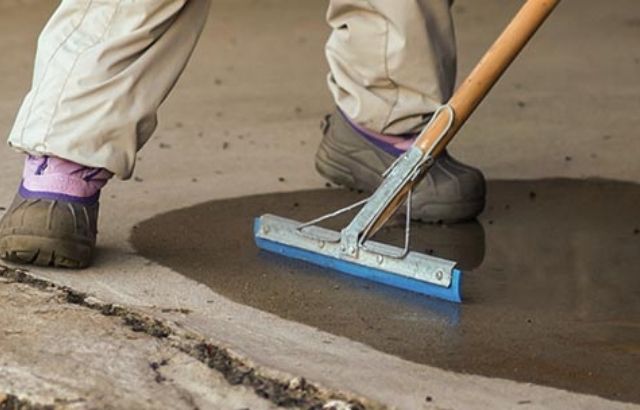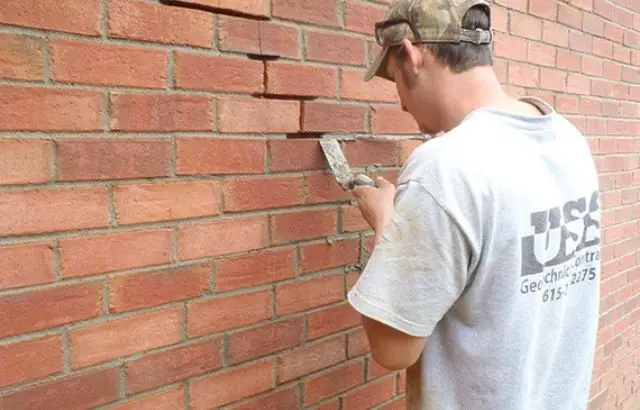The best alternatives to basement dehumidifiers depend on the causes of moisture, the characteristics of the basement, and your budget. For what you should know how to keep basement dry without dehumidifier? Excess humidity promotes mold and mildew, but running a dehumidifier can significantly impact your electric bill.
There are specific cases where it is indispensable to apply other methods to dehumidify a damp room. You may need expert help to reclaim the surface and remove all the moisture.
How to Get Rid of Moisture in the Basement without a Dehumidifier?
To keep the basement dry without a dehumidifier does not take much. Using a dehumidifier today can be costly at times. That is why it is essential to clarify how to get rid of dampness in the basement.
Airflow to reduce humidity
If you reduce humidity in the basement, be aware of the relative humidity and know when the outside humidity level is lower than the inside. When the outside humidity is lower, you can open two windows and run a fan near a window. This automatically pushes the inside air to the outside. So the rest stays inside the building.
Crystal salt as a desiccant to absorb moisture
The use of a desiccant to absorb moisture from the air is an essential factor. This can become a homemade dehumidifier for the basement. Using crystalline salts (calcium chloride, also known as rock salt) in your basement will help absorb moisture from the air. All you do is dump out the water and refill the container with more crystalline salts.
Charcoal as a desiccant to absorb moisture
- Charcoal briquettes are magic. Especially when you pull fresh charcoal out of an open kiln, it will work wonders.
- Why! because it is fresh and has no moisture in it. So, it can absorb as much as it can.
- Silica gel as a desiccant is good to control moisture.
- Using this gel can be a bit dangerous, so be careful when using it.
- Always leave them out of the range of children and pets and, if necessary, off their feet.
- Just get bags of silica gel and leave them in damp places and your basement. It will do its part well.
Install the fan and proper ventilation
- Be sure to vent the steam to the outside.
- It will be only a small investment and will provide you with long-term comfort.
Place dry clothes outdoors (in the sun)
- Depending on where you live, air-drying is ideal.
- This is good for several reasons. One, it won’t dry indoors and therefore helps with the moisture problem.
- Since you will be air drying, your dryer will not be used for a good six months.
- Thus, electricity decreases to 50% in a year and the service life doubles.
- Drying anything in direct sunlight is good. It’s a form of sterilization.
Always have the air conditioning on
- Figure out a temperature that makes you comfortable and set your air conditioner to run consistently.
- If you have a properly sized air conditioner, it will have a decent cycle time.
- So it is made to run frequently and dehumidify your home and basement.
Read More: How Does A Humidistat Work With Air Conditioning
Cool shower
- Taking a hot shower can sometimes be disadvantageous.
- A better way to reduce the moisture problem in bathrooms is not to take a hot shower.
- Turn the shower where it is not too cold, but just starting to feel comfortable will do fine.
However, if you want a hot shower, do it quickly. Or make it progressively cooler, or a combination of both.
Close the cooking pan while on the stove
- Permanently close the pot and pan while on the stove. Moisture will be trapped in the lid.
- When opening the cover, condensation moisture starts to show under the cap.
- This way, you can quickly pour the water directly into the sink.
- You can also keep the vent hood on while cooking. Therefore, any steam escaping from the pan will be expelled.
- Be disciplined with these two suggestions (while cooking), and you will significantly reduce cooking humidity.
- Control air infiltration from the outside (fill cracks and seal).
- Whenever you don’t know how to address the moisture issue in the basement, this is often overlooked.
- When searching for moisture-related issues, this should be your first priority.
- Look for wall cracks and make an effort to patch them. Search for waterproofing hints.
- Or even rust stains on the concrete, which indicate the presence of a leaking area.
- Even without water leaks, fissures may allow humid outside air to enter. Many issues arise when that air (via condensation) enters a cooler space.
- It’s crucial to constantly look into potential water damage.
Move houseplants outdoors (weather permitting)
- Plants leave moisture outside. Therefore, keeping it indoors is not a great idea.
- When conditions are suitable for your plants to thrive, leave them outside. Just move them in late fall, and you’ll be fine.
How to Dehumidify a Room without Electricity?
- It is the only way to dehumidify, using any material that absorbs and retains moisture (i.e., a desiccant).
- You should plan for and vent any vapour. Therefore, install a good bathroom fan and vent it to the outside.
- The sample applies to your laundry room. Learn to add a laundry room to your house.
- Keep all doors closed, ventilate well. And then get the desiccant, so it puts less stress on you.
- Silica gel is good, as it absorbs moisture from the air.
- Purchase them, open the container or bag and place them in an accessible place where they can absorb moisture from the air.
- It acts like a sponge. The sponge sucks and retains water.
- On the other hand, a desiccant absorbs moisture and vapour from the air, leaving it with drier air.
- Manufacturers produce absorbent dehumidifiers. They use a desiccant, such as silica gel, to absorb the water and find a way to absorb it into a reservoir for disposal.
What makes my House so Wet, and what Causes can Lead to High Humidity?
There are several reasons. First and most apparent, you are in a very humid climate.
Seasonal problems
The volume of vapour in warmer air is much greater than in cooler air. So, in general, the summer months are humid. Since outside air comes in in many ways, you will see more humid air in the summer months.
Oversized air conditioners
It is also essential to know that you will experience humidity if you have a large air conditioner. While you may think your AC is too powerful, it hurts that it helps. Your air conditioner runs on shorter cycles and cools your home very quickly. In turn, do not allow your HVAC units to dehumidify the property. In case you didn’t know, dehumidification is also the function of your air conditioning unit.
Read More: How To Check The Freon In A Home Air Conditioner
Poor ventilation and insulation
Have you ever noticed mold and mildew growth in your bathrooms?
That’s right because your steam shower puts too much moisture in the air, and there’s no way to get out. The same goes for a poorly ventilated laundry room. And when your bathroom or laundry room door is open, you’re only increasing the moisture level throughout your home. It is imperative to insulate. In case a wall is poorly insulated and humid air enters from the outside, it will directly affect the humidity level in the room.
The seal in your basement does not exist.
- Dirt in the crawl space will be damp and increase the humidity level.
- So, you have a basement and no crawl space?
- In this case, your basement concrete floors are breathing vapor into your basement living space unless you have filled all the cracks and sealed the floor.
- Even then, you’re not sure about the concrete or cinder block walls. Basement walls are porous, and if some vapor barrier material did not already insulate them, you would see an increase in moisture.
Plants and damp interior wood
- For plant lovers who keep and water their plants indoors, think of them breathing.
- Do you know what happens after watering the plants?
- They absorb all the water, so when they exhale (so to speak), they will leave a lot of moisture in the air.
- The same goes for wet wood or basically anything that has moisture in it. Your indoor air, when it dries out, will suck the water out.
How to Keep Basement Dry without Dehumidifier: FAQs
How do you dehumidify a basement naturally?
- Ventilate. Ventilation will increase airflow and help reduce humidity.
- Check for leaking pipes. Repair any leaks so that moisture does not enter that way.
- The cover exposed the floor on houseplants.
- Air conditioning.
- Amateurs.
- Replace heating/air conditioning filters.
- Light your wood stove or fireplace.
- Take shorter showers.
How do you dehumidify a room without a dehumidifier?
- Absorb moisture. If you place pots of calcium chloride in problem areas of your home, you
- Should see a rapid reduction in humidity levels.
- Ventilate your home.
- Remove houseplants.
- Take shorter showers.
- Vent dryers.
- Fix leaks.
- Install a solar air heater.
- Switch to dry heat sources.
How can I dry my basement fast?
- Ventilate the room. Start drying out space by airing it out.
- Look for hazards in the room. An empty basement might be safe to enter and begin the
- Cleaning and water are drying processes.
- Find the source of the water.
- Absorb and remove the water.
- Use an Air Mover.
- Purchase a dehumidifier.
- After water removal
Conclusion
Having a dehumidifier can be expensive these days. However, our basement must stay dry. It is essential to take care of every space in the basement, if necessary, from the gutters to the sump.
Having proper drainage can help prevent moisture in your home. A sump pump is even better. Moisture over time produces mold and mildew that can affect us. No one wants moisture in their basement, so follow these tips to keep your basement dry.




